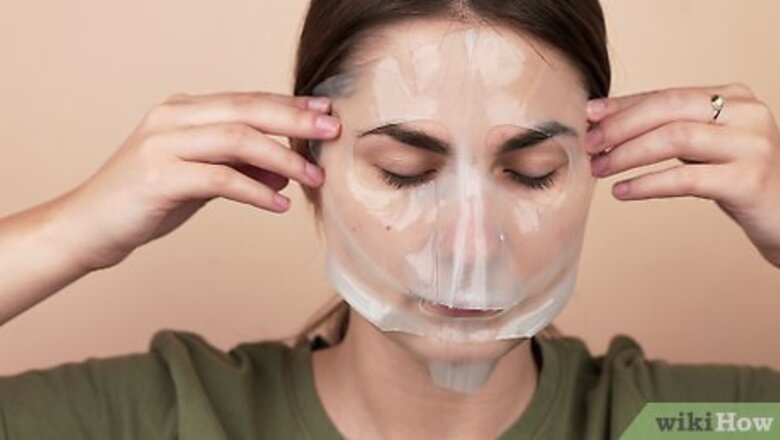
views
Do a sheet mask to get your glow on.
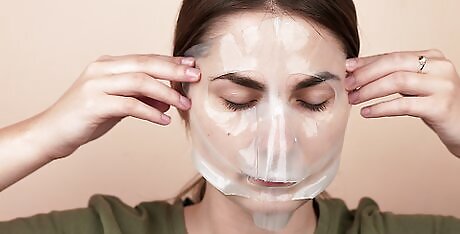
Sheet masks are super hydrating and only take 10-15 minutes. Look for sheet masks with skin nourishing ingredients like hyaluronic acid and antioxidants to really plump and moisturize your skin. Since over-using sheet masks can irritate your skin, stick with one application a week. Try other types of masks to target specific issues. For example, overnight masks are great for extremely dry skin. Clay, sulfur, and mud masks are awesome for soaking up oil and gently exfoliating your skin.
Reduce eye puffiness with a cold compress.
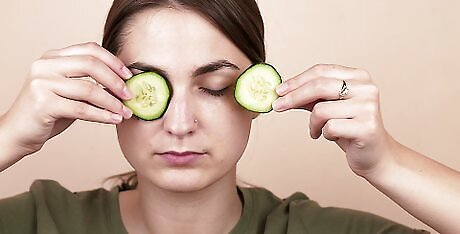
You can also use chilled cucumber slices or spoons for this. If you're dealing with eye bags, use something cold to quickly reduce the swelling. Place a cold compress or an ice pack wrapped in a towel over your eyes for about 10 minutes to cut down on swelling and inflammation.
Refresh your skin with a face mist.
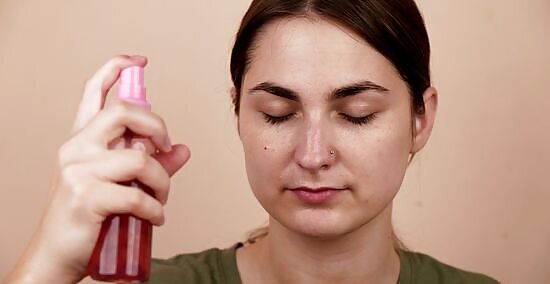
Look for a hydrating formula without any alcohol in it. Face mists can provide a quick burst of hydration any time during the day. You can apply a quick spritz of face mist to clean, makeup-free skin, and it's fine to use over your makeup, too! Look for hydrating ingredients like lactic acid, glycerin, aloe leaf extract, and hyaluronic acid to plump your skin. Alcohol will dry out your skin so definitely steer clear of that. Most products say you can apply throughout the day as often as you like for a quick burst of hydration.
Use skin care products with targeted ingredients.
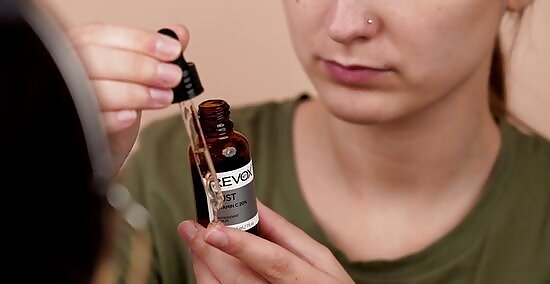
Certain ingredients can refresh and brighten your skin. Moisturizing and exfoliating are a great start, but consider kicking your skin care regimen up a notch if you want a truly fresh-faced glow! Experiment products that target specific issues like skin tone, texture, fine lines, and wrinkles. You can get them OTC or by prescription. Some ingredients to look for and what they target: Retinoids (fine lines and wrinkles) Vitamin C (skin tone and brightness) Alpha hydroxy acids (AHAs) like glycolic, citric, and lactic acid (fine lines, wrinkles, smoothness) Peptides (skin texture and fine lines) Niacinamide (moisture, skin elasticity)
Wash your face twice a day with warm water.
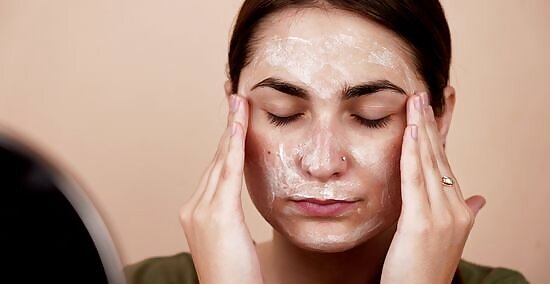
Hot water strips your skin’s natural oils and makes it dry. Dry skin is dull, flaky, and one of the main reasons why skin doesn’t look fresh. Using lukewarm water helps maintain your skin’s protective oils. If you’ve been using hot water, you’ll probably notice the difference in your skin almost immediately. If you just can’t part with a nice, steamy shower (it feels so good!), keep your face dry when you’re washing your body. Then, wash your face at the sink once you hop out.
Use a gentle, non-abrasive cleanser.
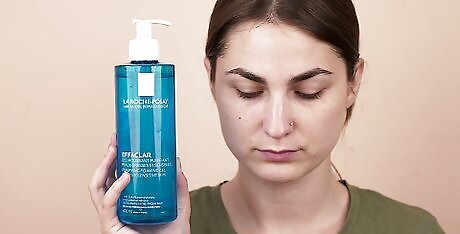
Look for a non-foaming cleanser that’s fragrance- and alcohol-free. Harsh ingredients get your skin squeaky clean, but they also strip your skin’s protective oils along with the dirt. Abrasive cleansers (like scrubs) can irritate your skin if you use them daily, and fragrance can cause dryness and irritation. For the best results, stick with a mild cream or gel formula. Drugstore cleansers like Cetaphil and CeraVe are mild, affordable, and recommended by dermatologists for all skin types. After washing your face, blot your skin gently with a towel.
Exfoliate 1-2 times a week.
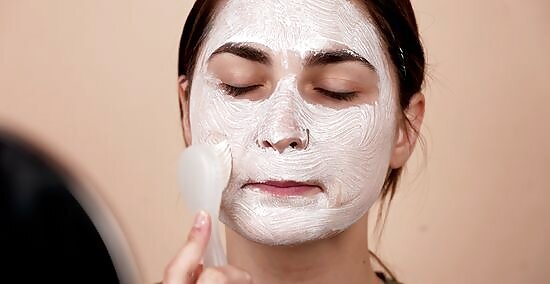
Exfoliating removes dead skin so your face looks fresh and bright. If you have dry, sensitive, or acne-prone skin, try a mild chemical exfoliant like 5% glycolic acid to refresh your skin. Avoid mechanical exfoliants (like scrubs) since they're a little harsh for you. If you have oily skin, stronger chemical treatments and scrubs are good options to reveal smoother skin. No matter what skin type you have, limit exfoliating to twice weekly so you don't irritate your skin. Avoid strong chemical and mechanical exfoliation if you have hyperpigmentation or if you tend to scar easily. Always apply moisturizer after you exfoliate your skin. Never exfoliate your skin if you have open cuts or a sunburn.
Apply moisturizer to damp skin.
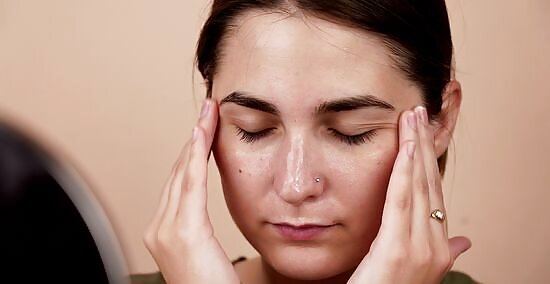
Damp skin absorbs product and seals in moisture. Don’t use regular body lotion for this! Use a facial moisturizer formulated for your skin type. Try to find products labeled “for sensitive skin” with 10 ingredients or less listed. Look for hydrating ingredients like hyaluronic acid, niacinamide, and squalene, which also help protect your skin’s moisture barrier. Be extra gentle applying moisturizer around your eyes since the skin there is very delicate.
Use sunscreen with SPF 30 daily.
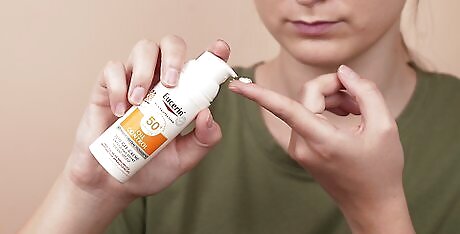
Sunscreen prevents premature aging, wrinkles, and brown spots. It’s important to wear sunscreen on your face every day whether you’re spending time outdoors or not. Sunlight can come in through car, classroom, and office windows, too! Dermatologists do recommend using sunscreen indoors for the most protection. Use a sunscreen formulated for your face. Regular sunscreens are a little too heavy for the skin on your face and could clog your pores. Every time you go outside, the sun has a chance to damage your skin, so putting sunscreen on in the morning can help protect you against that damage.
Use foundation and concealer sparingly.

Too much foundation can make your skin look heavy and aged. Instead, try applying a light layer of liquid foundation or use a tinted moisturizer for light coverage. You can even make your own tinted moisturizer by mixing a little of your current foundation with your daily moisturizer. You'll get light coverage on your skin and reap the benefits of extra moisture all day. Mix a drop of liquid highlighter into your moisturizer or foundation for a luminous, all-over glow.
Apply highlighter for a healthy glow.
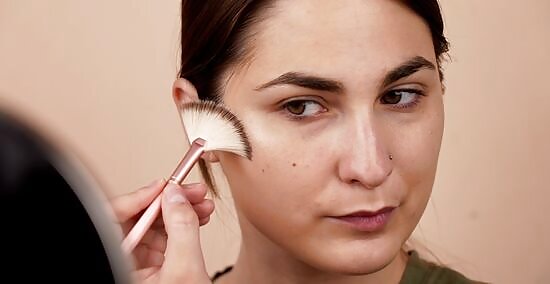
Use a fluffy brush to highlight the tops of your cheekbones. This is a quick and easy way to illuminate your cheekbones. If you want glowing cheeks instead of defined cheekbones, dab a small amount of liquid or cream highlighter on the apple of each cheek and use circular motions to blend it in. You can also: Dab a little cream highlighter on the center of each eyelid and in the inner corners of your eyes to look more awake. Use liquid or cream highlighter under your eyes to disguise dark circles and bags.
Take a probiotic supplement.
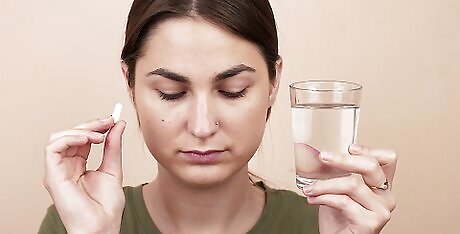
Improving gut health may prevent inflammation, acne, and eczema. Studies show that gut health and skin health are directly related—if your gut is healthy, your skin will show it! Taking an oral probiotic supplement every day can help improve your gut health, which can prevent and help treat skin issues like eczema, atopic dermatitis, acne, rosacea, inflammation, and sun damage. With that many potential benefits, oral probiotics are definitely worth considering. Stick with supplements that contain Lactobacillus and Bifidobacterium since their effects have been studied the most. The effects of topical probiotics are being researched, as well. So far, studies show that topical probiotics could help reduce acne.
Sleep 7-9 hours per night.

Sleep helps your skin retain moisture and repair itself efficiently. If you aren’t getting enough sleep at night, your skin will start looking dull and lifeless. Not getting enough rest means your skin doesn’t have time to repair itself, your skin cells can’t regenerate as fast, and your skin's collagen production is reduced. Collagen gives your skin volume and elasticity, so you definitely want to produce plenty of it! If you’re a teenager, aim for 8-10 hours of sleep each night.
Eat antioxidant-rich foods.
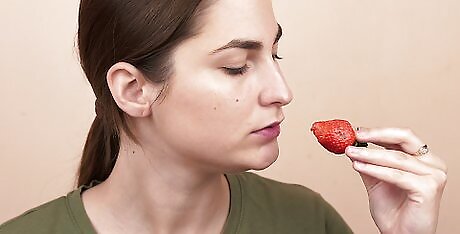
Antioxidant- and nutrient-dense food keeps skin healthy and youthful. Fish, vegetables, fruit, white meat, and nuts are great for healthy-looking skin. Additionally, cruciferous vegetables, such as cabbage, kale, Brussels sprouts, and broccoli have anti-inflammatory properties and are rich in vitamins that your skin craves.
Avoid smoking.
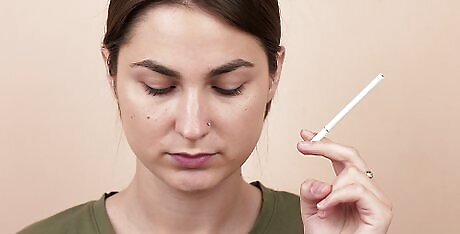
Cigarettes can make skin look dull and cause premature aging. You already know that cigarettes are bad for your lungs, but you may not know that they’re also hard on your skin! Smoking can make your skin look older than it should because it damages your skin’s elastin and collagen—important fibers that give your skin volume, elasticity, and strength. If you’re a smoker, quitting the habit will improve your skin tone, texture, and overall health.











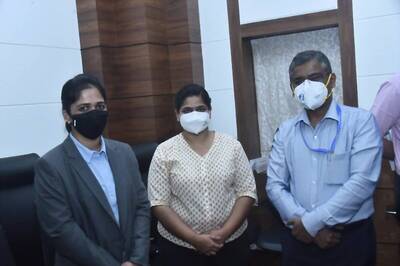

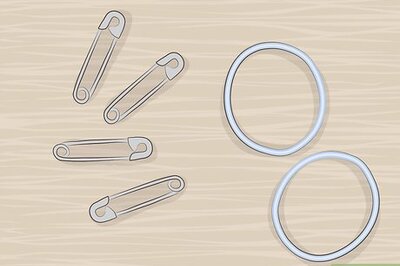




Comments
0 comment